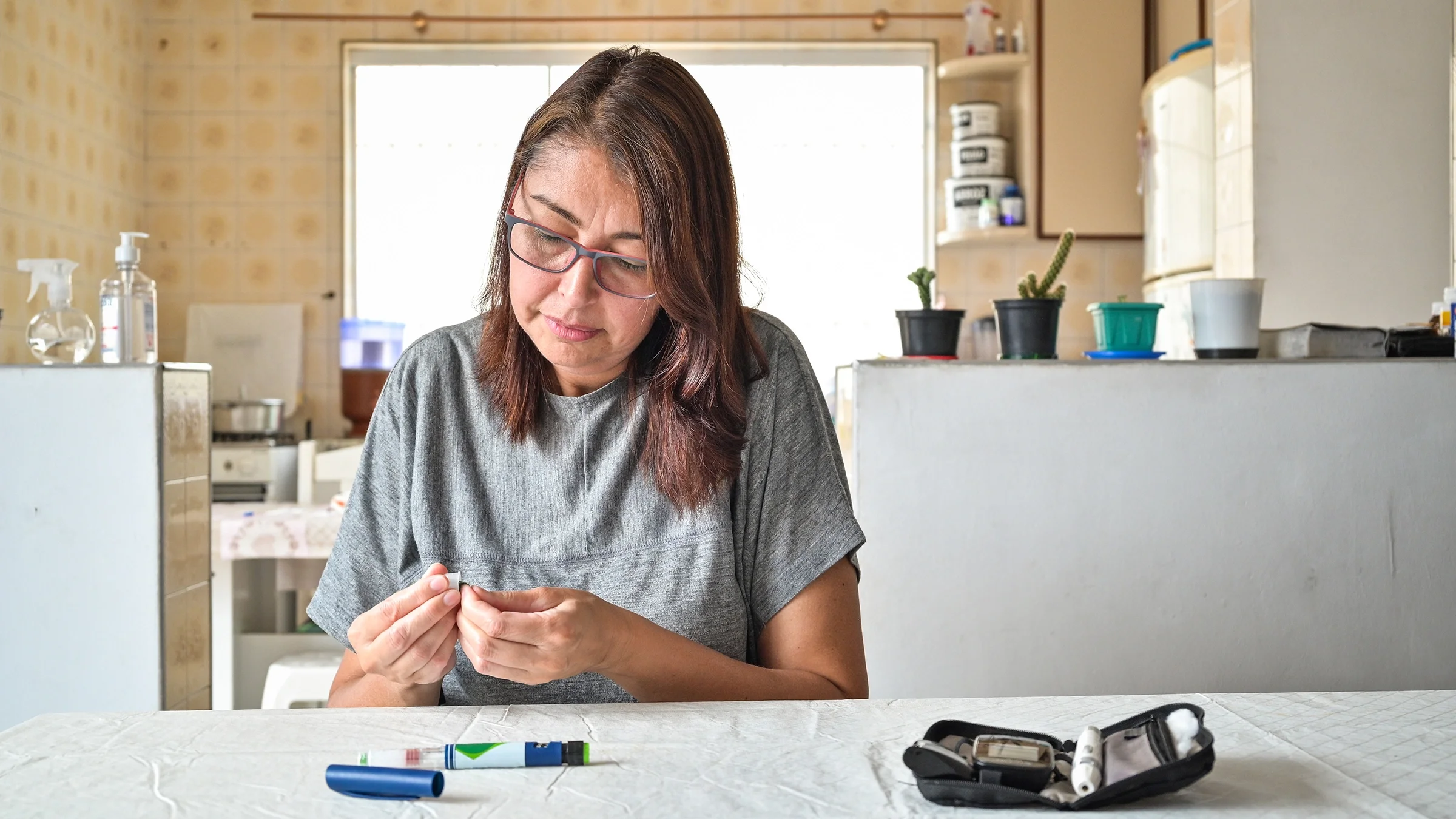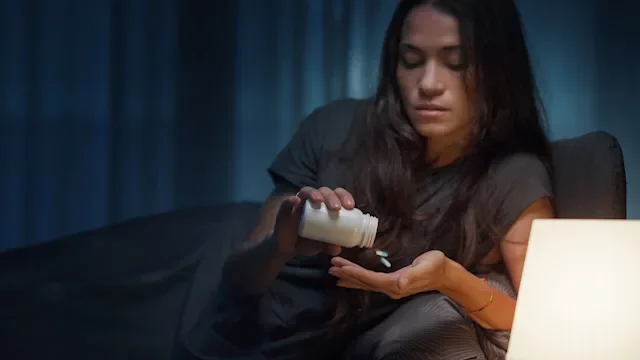Key takeaways:
Many medications should be stored at room temperature, usually between 68°F and 77°F (20°C to 25°C). This includes most, but not all, capsules, tablets, and topical creams. If your medication needs to be refrigerated, it should be stored between 36°F and 46°F (2°C to 8°C).
Medications that are exposed to very hot or cold temperatures can undergo changes that affect their safety or effectiveness. Sometimes this causes a visible change in their appearance, but not always.
If you think your medication was exposed to overly hot or cold temperatures, don’t take it without talking to a pharmacist first. They can advise you on what to do based on your specific situation.
Just like your favorite foods, your medications should be stored in a certain way. Some can be kept at room temperature, while others require refrigeration. If exposed to extreme heat or cold, they may not work as they should or could even become unsafe to use.
Let’s explore how temperature affects medications, how to spot signs of temperature-related damage, and how to determine if an exposed medication is safe to take.
What temperature should most medications be stored at?
The majority of medications should be stored at room temperature, usually between 68°F and 77°F (20°C to 25°C). This includes most, but not all, capsules, tablets, and topical creams.
Search and compare options
The environment you store your medications in is also important. You shouldn’t store your prescription medications in places that are overly humid or prone to temperature changes, such as the bathroom or your car on a hot day. This is because humidity and changing temperatures can change a medication’s appearance and affect how well it works.
It’s best to store your medication in a cool, dry place where the temperature is relatively stable — like on your nightstand or in a kitchen cabinet that's away from any sinks or hot appliances.
Which types of medications have specific storage needs?
Several medications are known for having specific storage needs. Some common ones include injectable medications, liquid antibiotics, and eye drops. These medications generally require refrigeration at 36°F to 46°F (2°C to 8°C). This is because colder temperatures protect their quality, namely by preventing them from spoiling or breaking down.
Common examples include:
Insulins, such as Lantus (insulin glargine) and Tresiba (insulin degludec)
Liquid antibiotics, such as Augmentin (amoxicillin / clavulanate) and cephalexin suspension
Biologics, such as Humira (adalimumab) and Dupixent (dupilumab)
Certain eye drops, such as Xalatan (latanoprost) and Azasite (azithromycin)
Certain suppositories, such as Promethegan (promethazine) and indomethacin
If you accidentally left your refrigerated medication out for a longer-than-recommended period of time, don’t use it until you talk to a pharmacist to confirm that it's safe.
Need advice on where to keep your medications? Pharmacists describe some of the best places to store them.
Forget to put your insulin in the fridge? From Lantus to Novolog, find out how long insulin can stay out at room temperature.
Take advantage of that carry-on: Learn how to travel on a plane with your medications.
What happens when medications are exposed to extreme temperatures?
When a medication is exposed to temperatures outside of its recommended storage range, this is known as a “temperature excursion.” These events can change a medication’s effectiveness and safety, potentially making it not work as well and even be harmful to use.
How heat affects medications
In general, heat can cause medications to break down, making them not work how they’re supposed to. When this happens, new chemicals called byproducts can form, and some may be harmful. For example, if aspirin is exposed to heat, it can create vinegar and salicylic acid, which may lead to stomach irritation.
How cold affects medications
Cold temperatures can cause your medications' consistency to change, which can make them not work properly. For example, insulin can form crystals if it gets too cold, and liquid medications can become clumpy or separate. Even if they return to room temperature, they may not work the same way.
In general, most medications should never be frozen. Freezing can cause permanent damage and make them unusable. Be sure to store them away from the cooling element in the fridge, too.
How can you tell if temperature has affected your medications?
The easiest way to tell if your medication has been affected by temperature is to look at it. Temperature changes can sometimes cause medications to look cracked or chipped. These fluctuations could also alter their color, texture, or even scent. Oral pills might stick together or be harder or softer than normal too. You can also check the container; if it feels warm or looks warped, the medication may have been exposed to heat.
This method isn’t foolproof, though. Medications that are exposed to high or low temperatures can still be unsafe to use even if they look normal.
How to handle medication temperature excursions
If you believe that your medication was exposed to extreme temperatures, you shouldn’t take, use, or inject it until you've confirmed that it’s safe to do so.
Here are some general tips to follow:
Inspect your medication to see if there are any visible signs of damage.
Check your medication’s packaging or attached labeling. You may find basic instructions on managing temperature excursions that come directly from the manufacturer.
Most medications are no longer safe to take if they freeze at any point. You’ll likely need to discard your medication and get a replacement in this case.
These are a good starting point to consider. But they may not answer all your questions. If you’re still unsure, contact your pharmacist for further advice. They can dive deeper into the situation and call the medication’s manufacturer on your behalf. Alternatively, you can try contacting the manufacturer on your own; most companies have customer service teams that are happy to field specific product questions.
Medication manufacturers are required to study how their medications hold up in very hot and cold temperatures. This helps determine safe storage conditions. However, this information is usually not made public and is only shared when someone asks about a specific temperature issue. That’s why reaching out to the manufacturer can help you determine if your medication is still safe to use after a temperature excursion.
If all else fails, it’s best to be cautious. Hold off on taking the medication and reach out to your pharmacist. They can help you get a replacement product (if needed) and tell you how to dispose of the original medication.
Special considerations for travel and outdoor storage
If you’re traveling, you won’t always have the resources you need to store your medication correctly. Here are a few things to consider in different situations:
Refrigerated medications: If you don't have access to a refrigerator, it’s ideal to store your medication in an insulated bag with ice packs. Make sure the ice packs don't directly touch your medication, though, because it could possibly cause it to freeze. It's also a good idea to also use a thermometer to track the temperature; you’ll want to make sure it's not too warm or too cold.
Air travel: If you’re traveling on a plane, you should always keep your medications in your personal item or carry-on bag. Putting them in your checked bag is risky since the temperatures can change quite drastically in the cargo hold of the plane. You may also need access to your medications on a long flight.
Road trips and hot weather: Never leave your medications in a parked car, even for ones that don’t require refrigeration. When the car is on, air conditioning can help keep your medication cool. But once turned off, things can get hot, fast. Never keep medications in the trunk of a car either — no matter if the car is on or off.
The bottom line
Do your best to follow recommended medication storage temperature guidelines. Most medications should be kept at room temperature (68°F to 77°F), while others should stay refrigerated (36°F to 46°F). Exposure to extreme heat or cold can affect how a medication works — or even make it unsafe to take.
If your medication has been in very high or low temperatures, check for signs of damage and talk to a pharmacist before taking it. You can also consider reaching out to the medication’s manufacturer for more information about a temperature excursion.

Why trust our experts?



References
Diabetes Disaster Response Coalition. (2018). Safe storage of insulin.
Kumar, N., et al. (2017). Temperature excursion management: A novel approach of quality system in pharmaceutical industry. Saudi Pharmaceutical Journal.
Transportation Security Administration. (n.d.). Disabilities and medical conditions.
MedlinePlus. (2024). Storing your medicines.
Williams, S. R., et al. (2011). Drug storage and stability. EM Consult.














